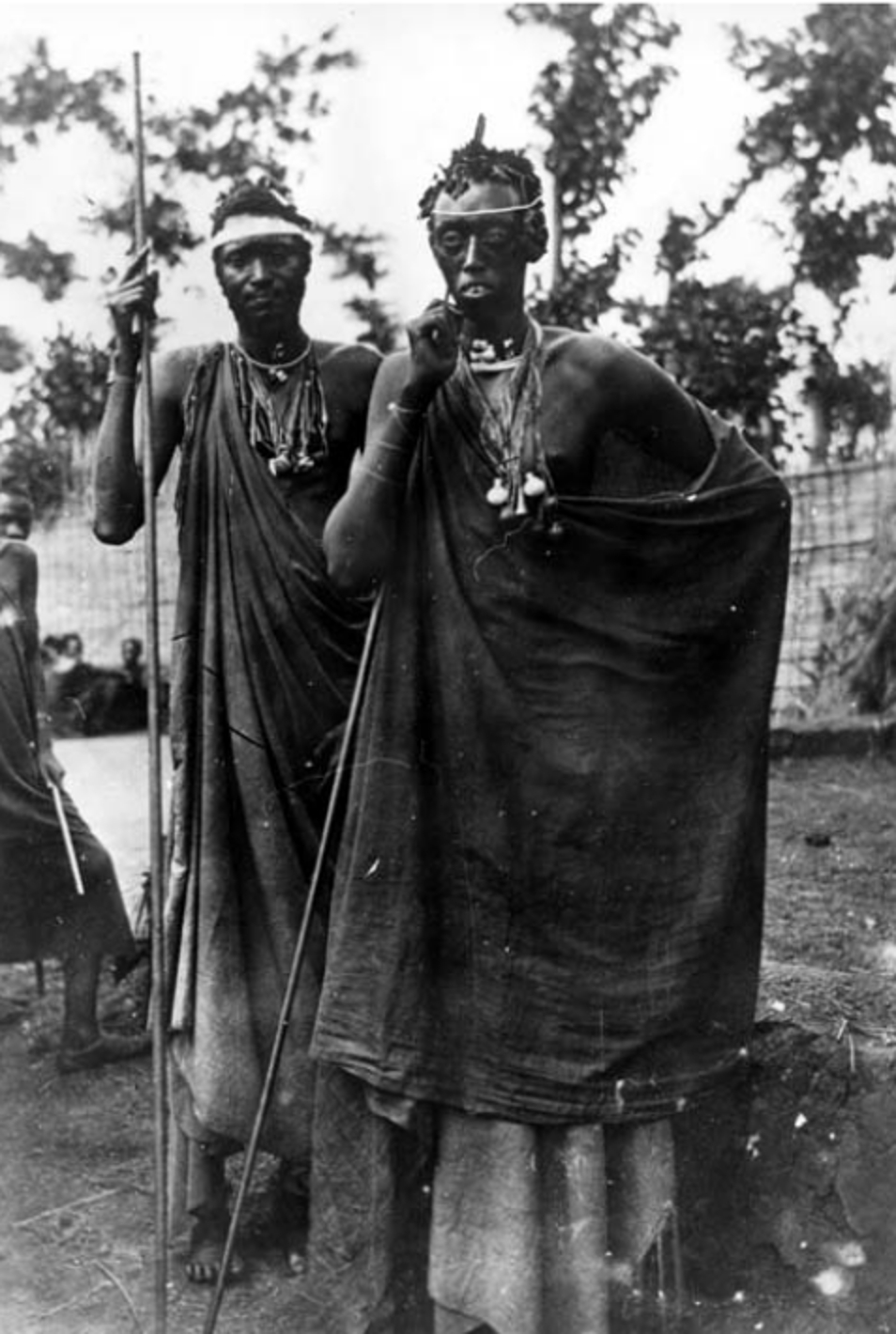Mwezi IV. Gisabo of Burundi (Meyer 1916)
 |
| Mwezi IV. Gisabo (1845-1908) |
I
always loved this photograph of the King of Burundi made by the
German Missionary Meyer. This picture was taken around the time of
his death in 1908. In contrast to most German photographs portraying
African rulers as political figures or/and according to the racialist
lines of their world views, Meyer shows the king as a human and
nothing else. In an almost expressionist way the photograph it brings
the king at the bottom of creatureliness, where there is no space for
colonial discourses but for empathy.
Mwezi
Gisabo ruled Burundi from 1860 to his death in 1908. During his
regency, Burundi was shaped by intense power struggle between
different fractions and chiefs. When the Germans established their
first station at Bujumbura in 1899, Mwezi IV. Gisabo hoped to extend
hsi power with their help. The relationship between the African ruler
and Germans, however, remained difficult for most of the time. The
German official Captain von Bethe accussed Gisabo to conspire against
German rule. In 1902 and 1903, Beringe went to war against Gisabo.
After initial fighting, Gisabo offered his submission. Beringe
granted several chiefs independence from Gisabo's suzerainty. The
governor of German East Africa, Count von Götzen, however was
furious about the campaign of Beringe, who had acted against his
explicit orders to keep peace. He ordered Beringe to restore the
power of Gisabo and to force the chiefs to accept their subordination
under Gisabo.


Interesting your critiques of the photographers as driven by colonial discourse, then further you seem to wallow in ideas of creatureliness or empathy,...empathy for what and what is wrong with trying to grandify our monarchs? So when I walk in galleries, museums and the likes in Big European cities, what do I see? Their ancient monarchs and princes on toilet seats? Picking up their noses? Imitating their neanderthals ancestors? You are only fooling yourself, not me,...you are worse than Meyer and co.
ReplyDelete